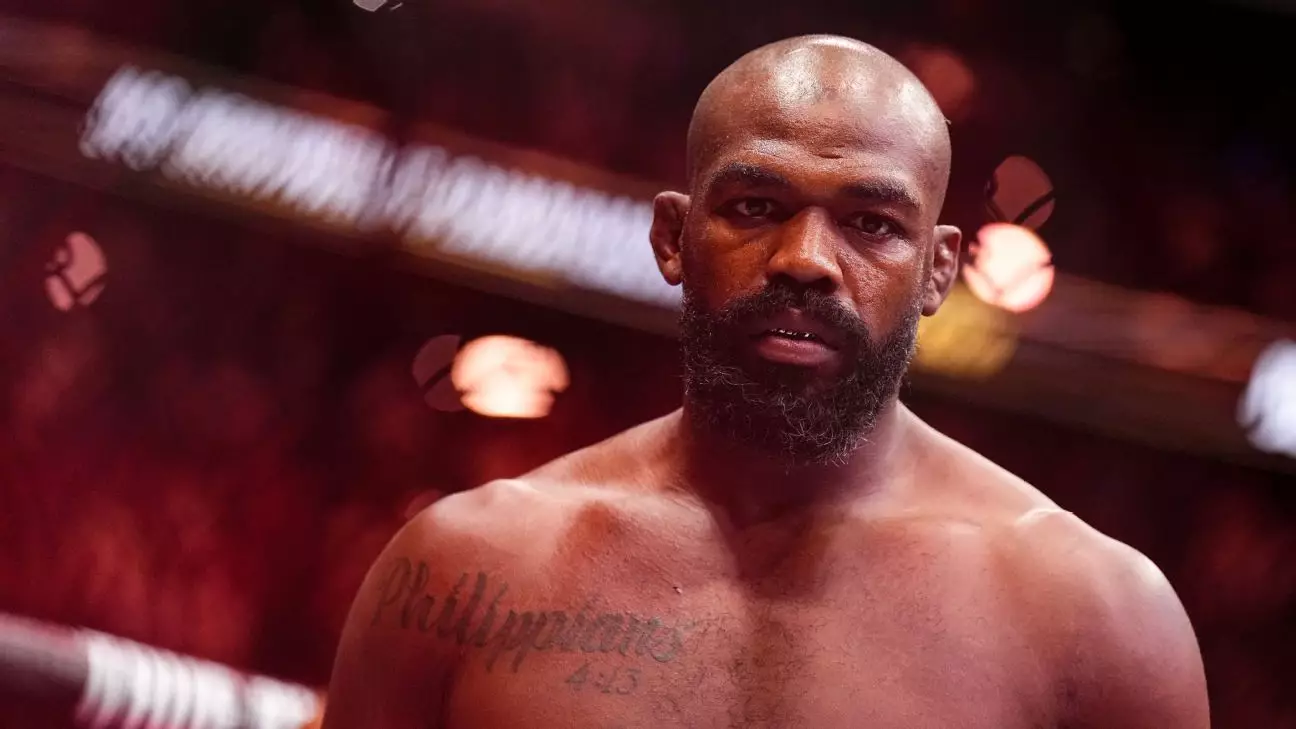Recent events surrounding Jon Jones’ retirement shocked many fans, yet it may have been an expected twist in a career steeped in contradictions. UFC CEO Dana White expressed subtle disappointment during a post-fight news conference in Baku, Azerbaijan, highlighting the complexities of a fighter who invariably cast a shadow over the UFC landscape. It’s difficult to fully encapsulate the legacy of Jones without acknowledging the disappointments and discontent that trailed his every step—particularly among fans and fellow fighters eager for a heavyweight title clash between Jones and Tom Aspinall. Rising tensions and uncertainty surrounded this anticipated matchup, only to crumble as Jones stepped back from the cage, leaving an abundance of questions in his wake.
The manner of Jones’ exit resonates with his enigmatic persona. Retirement announcements reverberate within the MMA community, often hinting at a deeper narrative about power dynamics, career management, and self-interest. A seasoned MMA journalist once said, “Fighter psyches are both fascinating and frail.” In this case, Jones’ decision to retire adds another layer to a complex psychological portrait that has puzzled fans and analysts alike.
Selfishness: A Double-Edged Sword
In the realm of mixed martial arts, Jon Jones stands out not just for his technical prowess but for his notorious selfishness—an attribute that has become his defining characteristic. Rather than aligning himself with the expectations of the UFC or the desires of his fan base, Jones has consistently made decisions rooted in personal benefit. He recently favored a bout against Stipe Miocic, a former champion, instead of putting himself on the line in a fight against Aspinall. This choice exemplifies how his career has operated under a principle of prioritizing his own narrative over the demands of the sport.
Some may argue that this self-absorption has shielded Jones from premature career ending associated with risk-taking. While many fighters adhere to obligations toward their fans and promoters, Jones appears unperturbed by these norms. His willingness to simply walk away from a highly-anticipated matchup reflects a level of control that many fighters desire but seldom achieve. It raises the question: to what extent can this selfishness be justified in the ultra-competitive world of the UFC?
A Complicated Relationship with Legacy
Jon Jones has excelled in navigating the complexities of his career. His initial ascent marked by spectacular victories has been tainted by personal controversies ranging from legal entanglements to failed drug tests. With only a handful of bouts over the past decade, Jones has skillfully avoided engagements that might compromise his status as a top contender. His management mirrors a calculated approach, reminiscent of high-stakes poker. While other champions have taken short-notice fights to defend their titles, Jones has chosen to prioritize his own schedule—a strategic decision that helps maintain his carefully curated legacy.
Fans have grown skeptical of his legacy, questioning whether he genuinely aims for redemption or if he merely seeks a controlled narrative. The specter of financial discussions looms large as well; Jones has made clear that his purses must match his stature. Reports of demands akin to “Deontay Wilder money” for a potential matchup with Ngannou indicate that Jones has crafted his career not only around victories but also around lucrative opportunities. Is this merely a sophisticated negotiation tactic, or is it a manifestation of a deeper insecurity regarding his place in the sport?
Facing the Future
As the dust settles from Jon Jones’ retirement announcement, the implications reverberate throughout the UFC landscape. Questions surrounding his next moves dominate discussions, driven by the uncertainty of whether this retreat is permanent or a tactical pause. The future inevitably raises the possibility of him returning to face fighters like Aspinall—a matchup shrouded in speculation, yet tantalizingly close to reality with the promise of legacy on the line.
In a sport where uncertainty reigns and rivalries shape narratives, Jones holds a unique position. Ultimately, he has the power to execute a return that sees him redefined or further distanced from the accolades that once felt assured. Whether motivated by legacy or simply the urge to reassert dominance, one thing is certain: Jones will continue to operate on his terms, forever manipulating the narrative around his fascinating but fractured career.
In grappling with the implications of Jones’ selfishness, we must grapple not only with his legacy but also with the fundamental principles that bind the fabric of competitive sport. Loyalty, commitment, and personal ambition form the threads of a narrative that remains as tantalizing as it is unsettling, with each decision carrying weight that can redefine the sport’s future.


Leave a Reply